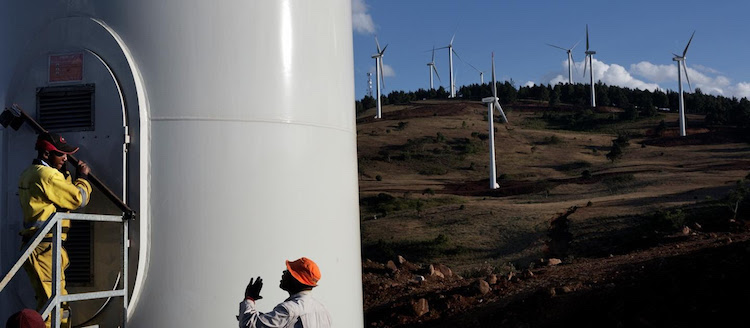By Radwan Jakeem
This article is part of reports by the UN SDG Media Compact of which IDN is a member.
NEW YORK (IDN-INPS) – UN Secretary-General António Guterres has repeatedly said that it is time to end the fallacy that subsidizing fossil fuels is a way to improve people’s lives, and has called for the private sector to support the climate agenda.
As an example of how business can support the UN’s climate agenda, Portugal-based utility company EDP (Energias de Portugal) has partnered with the UN-backed Sustainable Energy for All (SEforALL) initiative to fund sustainable and clean energy projects in east Africa, notably in Kenya, Tanzania, Mozambique and Malawi.
UN News looks at how clean energy has the potential to play a significant role in kick-starting sustainable development in the world’s emerging economies.
SEforALL delivery partner and multinational utility EDP is exemplifying the role the private sector can have in supporting Sustainable Development Goal 7 (SDG7) – affordable and clean energy for all by 2030.
EDP’s first edition of the Access to Energy Fund was launched in 2018, with 450,000 Euros earmarked for promoting access to energy in remote areas without access to the electricity grid.
Now, EDP has announced that this money will be allocated to six sustainable and clean energy projects across East Africa, notably in Kenya, Tanzania, Mozambique and Malawi.
According to the 2018 Tracking SDG7: The Energy Progress Report report, 600 million people across Africa do not have any electricity, with millions more having only intermittent access to power. The consequences of these access gaps are far-reaching, limiting opportunities for quality education and health care.
“Access to energy has the potential to play a revolutionary role in emerging countries, being an essential tool for a society to foster opportunities and equality”, António Mexia, president of EDP, explained in announcing the Access to Energy Fund’s recipients.
Building partnerships across the spectrum of stakeholders is at the heart of all that SEforALL does to ‘change the game’ on sustainable energy and accelerate the pace of progress towards SDG7. This includes supporting private sector partners, like EDP, in developing innovative solutions that close energy access gaps.
EDP’s Access to Energy Fund places the company’s financial support behind a series of initiatives that will impact upwards of 55,000 people, of whom ten thousand will be impacted directly. Co-operative Bank Foundation, SAVIC Africa, UN-Habitat, Girl MOVE, Energía Sin Fronteras Foundation and Sustainable Investments and Development Initiatives were selected from a list of 108 entities who applied for the first edition of the fund.
In Kenya, Co-operative Bank Foundation will install solar greenhouses to power irrigation systems in 12 schools to ensure that there will be adequate supply of food throughout the year while providing energy access for 6,000 people. Meanwhile, SAVIC Africa’s OKAPI Green Energy project will build a 12 kWp photovoltaic mini-grid at Kakuma Refugee Camp with smart metering technology to provide electricity to 150 homes and 50 business clients.
In Mozambique, the Girl MOVE Academy’s “Energy for a Better Future” program will create a 30 kWp solar energy plant for an ECOCampus and IT center for training a new generation of female leaders. UN-Habitat will build solar energy systems to supply 12 classrooms at two schools affected by natural disasters. In addition to promoting access to education for 1,300 people, the initiative also covers the installation of emergency alert systems, internet access and charging stations, which could generate revenue for schools.
Energía Sin Fronteras Foundation will offer 25.9kWp photovoltaic panels to provide electricity at St. Mary’s Rehabilitation Center in Malawi so that it will be able to provide 24-hour medical care and clean water to patients.
The Sustainable Investments and Development Initiatives (SIDI) will also allow 1,500 fishermen and commercial and public facilities to access energy through a 10 kWp photovoltaic mini-grid that will enable the generation, storage and distribution of power to a remote island in Tanzania.
These recipients were selected according to criteria such as social impact, partnerships, sustainability, potential for expansion and number of beneficiaries, work in the areas of education, health, water and agriculture, business and community. Each one received financial support ranging from 25,000 to 100,000 Euros based on their commitment to implement their projects by the beginning of 2020. [IDN-InDepthNews – 29 May 2019]
Photo: Clean Energy. Credit: UN
IDN is flagship agency of the International Press Syndicate.
facebook.com/IDN.GoingDeeper – twitter.com/InDepthNews
Send your comment: comment@indepthnews.colo.ba.be
Subscribe to IDN Newsletter: newsletter@indepthnews.colo.ba.be

